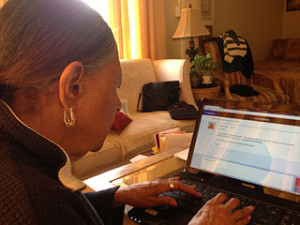The Piers Project, an internet safety awareness campaign of the Center for Innovation and Wellbeing, offers helpful tips on how to stay safe online.
 The Internet offers an abundance of health information resources that help consumers make more informed choices—it provides us with access to researching health conditions, medications, health services, and the ability to sign up for health plans. However, as it’s the case with many open marketplaces, it’s also important to know how to spot healthcare fraud.
The Internet offers an abundance of health information resources that help consumers make more informed choices—it provides us with access to researching health conditions, medications, health services, and the ability to sign up for health plans. However, as it’s the case with many open marketplaces, it’s also important to know how to spot healthcare fraud.
Health care scams come in different forms, such as falsely presented television ads, phone calls, e-mails, or other schemes that claim the need for additional healthcare identification cards due to newly established laws. Questionable service vendors may also lure consumers through the promise of significant discounts on health insurance costs. Other types of scammers may impersonate government officials, requesting Medicare identification numbers from older adults to send updated beneficiary cards. It’s important to always remain cautious and knowledgeable of current events, as scammers often plan to execute their attacks when Medicare and other national health programs undergo changes that are widely discussed throughout the media.
Here are some tips we would like to pass on to you:
– Research to confirm if statements made are actually correct. Prior to sharing your private information, contact Medicare (1-800-MEDICARE) to confirm the mentioned changes or requests. Share what you know or have learned with your friends and relatives.
– If you are looking for medical discount plans, keep in mind that they are not a substitute for health insurance. Medical discount plans typically offer coverage for services your insurance would not reimburse. Research further to validate licensure regarding the plan at HealthCare.gov:
- Research the most recent health plans and associated costs.
- Find assistance when shopping for health insurance.
– Exercise caution when you are shopping for products or services that specifically target older adults such as: health insurance packages, beauty or “anti-aging” products, medications and dietary/vitamin supplements, fitness equipment, medical treatments, therapies, or surgeries.
To learn more about health scams, please be sure to visit The Federal Trade Commission.
The Piers Project is funded by a gift from the family estate of Ellie Piers to benefit the Front Porch Center for Innovation and Wellbeing’s (CIW’s) ongoing mission of using technology to enhance wellbeing among older adults. Piers lived at Carlsbad By The Sea, a Front Porch retirement community in Carlsbad, CA. Her contribution allows the CIW to address Cyber Security through education, training, and the use of technologies that promote Internet safety, especially in the Greater San Diego Area.

